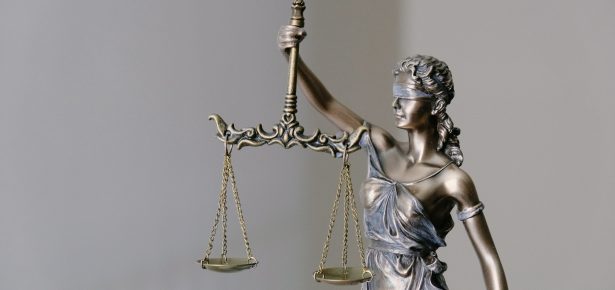
On November 10, 2021, Judge Piotr Hofmánski, the President of the International Criminal Court (ICC) gave the ICC’s annual address to the United Nations General Assembly. In his speech to the General Assembly, Judge Hofmánski thanked the United Nations for its commitment to the ICC and highlighted some of the ICC’s success over the past year. These achievements included handing down judgments in a range of long-standing cases and opening preliminary investigations into three additional situations.
In addition to highlighting the Court’s successes over the past year, Judge Hofmánski also noted a perennial challenge for the ICC: state cooperation, particularly with respect to executing the arrest warrants for suspected perpetrators. Jude Hofmánski remarked that there are currently 10 outstanding arrest warrants for suspected ICC perpetrators. While these outstanding arrest warrants might be relatively few in number, their impact reverberates around the international justice system.
Because the ICC lacks the authority to locate and arrest suspects, it must rely on state cooperation to execute arrest warrants and bring suspected perpetrators to trial. When states fail to turn indicted suspects over to the ICC, the Court’s work cannot proceed. The result is that justice goes unserved. The truth is not exposed. Perpetrators are not held to account. Victims do not receive the recourse they deserve.
Noncooperation and backlash against international justice and human rights is neither new nor unique to the ICC. Over recent years, international human rights and criminal courts have weathered backlash from both longstanding justice opponents as well as justice insiders. This backlash has taken several different forms: withdrawals and threatened withdrawals from international human rights and criminal tribunals; the creation of alternative courts; budgetary restrictions; and doctrinal challenges, among others.
While backlash has manifested differently, across the courts and over time, in each of these instances, backlash politics has taken aim at the courts’ structural, moral, and adjudicative authority. By refusing to carry out arrest warrants against indicted suspects, for example, opponents to the ICC have undermined the ICC’s judicial authority. The ICC cannot try perpetrators in absentia. Without suspects, then, there are no trials.
States’ failure to execute outstanding arrest warrants also puts the ICC’s reliance on member states into stark relief and illustrates just how vulnerable the ICC and other international tribunals are to manipulation by states and political elites. In turn, the ICC’s vulnerability and resulting inconsistent caseload fuel the narrative originating from justice opponents that the ICC is slow, elitist and ineffectual.
This cycle of backlash is self-reinforcing and hard to break.
In his speech, Judge Hofmánski encouraged those UN members states that were not already party to the Rome Statute, the ICC’s foundational document, to ratify the treaty. While the pursuit of universal ratification of the Rome Statute might be held up as a lofty goal, it is unlikely to serve as a solution to the Court’s problems with backlash politics.
Already high ratification rates obscure key normative divides that drive backlash against the ICC. For example, 123 states have ratified the Rome Statute. Of those 123 states, however, the number that regularly uphold the Rome Statute’s core principles and cooperate with ICC requests, is far fewer. Moreover, many member states actively work against the ICC in a variety of ways, including, of course, by refusing to execute arrest warrants against suspected perpetrators.
If universal ratification of the Rome Statute will not safeguard the ICC against backlash politics, then what will protect the ICC and international justice?
First, supporter states need to reaffirm the importance of the ICC and international criminal accountability consistently and doggedly, not just for a week each year at the UN General Assembly. Moreover, the ICC needs to take steps to improve its due process and internal bureaucracies. With ICC elections on the horizon in December 2021, the internal workings of the Court will be put under the microscope, and a lack of transparency and consistency will be readily exploited by opponents to international justice.
Finally, international justice supporters, including states, civil society, and scholars, need to continue to their tireless efforts to promote the norms of justice and accountability, especially in an age of backlash. Although the ICC’s perennial challenges remain as daunting as ever, opportunities for protecting and promoting the ICC and international justice more broadly are within reach.
Featured image by Tingey Injury Law Firm on Unsplash
Latest Comments
Have your say!